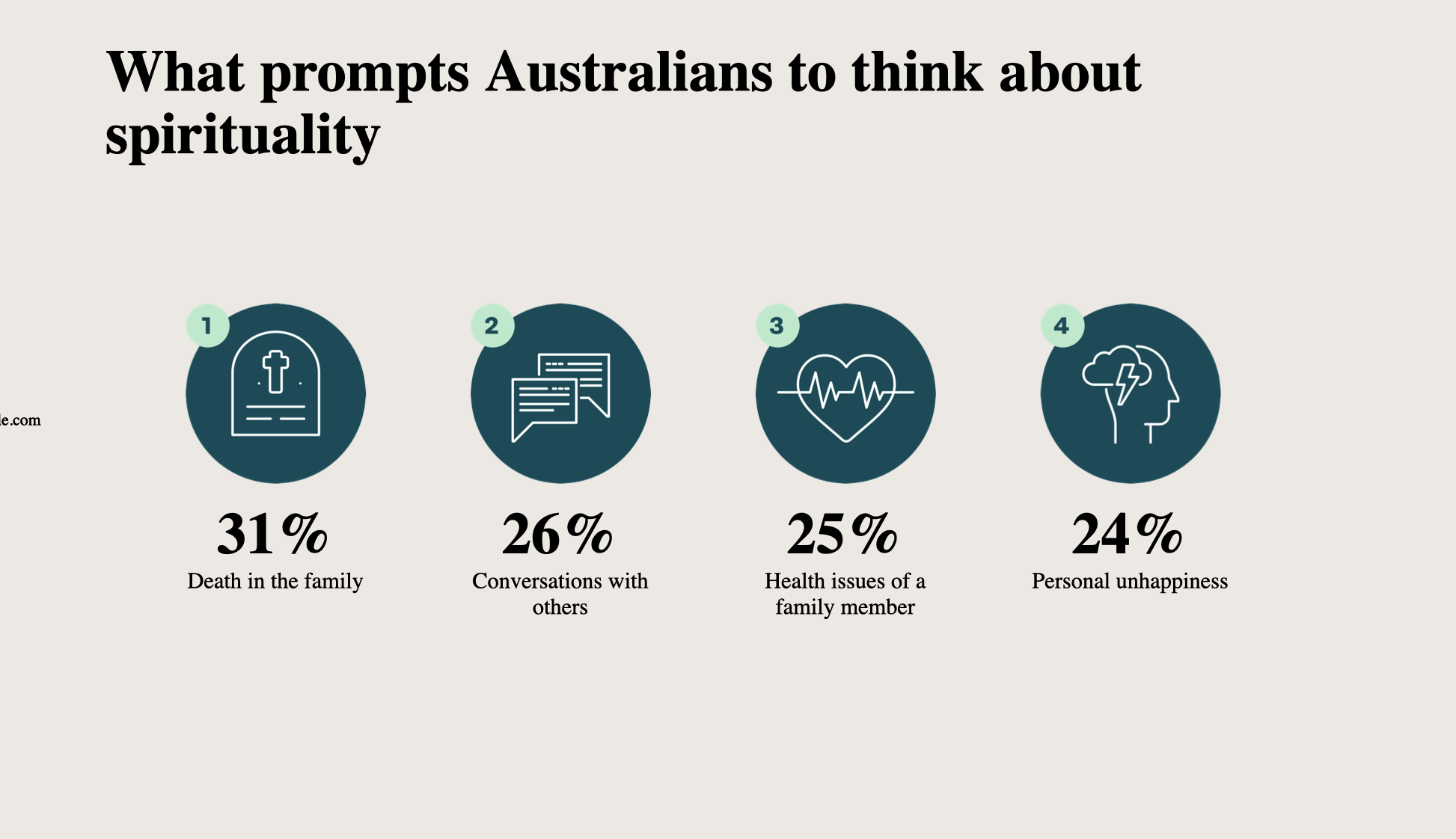This generation (Gen Z) are open to faith in a way that is different to those who are 20, 40 and 60 years older than them
McCrindle Research in Australia did a study that included the below.
Here are some simple – brief – points.
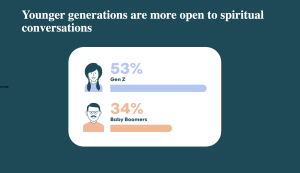 1. Younger generations in our culture are lot more open to spiritual conversations than older people.
1. Younger generations in our culture are lot more open to spiritual conversations than older people.
Lesson:
> We could be bolder to discuss spiritual things with them – because they are open to this!
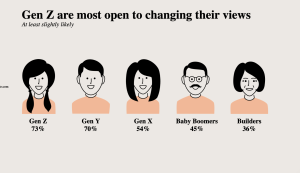
2. Younger generations in our culture say they are a lot more open to changing their views on spiritual things.
Lesson:
> We could be bolder to share our views – inviting discussion – because they are not only open to the discussion, they’re considerably receptive!
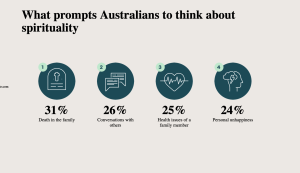
3. Considering these two images together – across the general population, people are prompted to think about spiritual things by death, conversations, health problems and unhappiness…
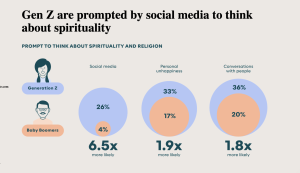
…while for youth – personal unhappiness and conversations are still triggers for spiritual thought – but interactions with others via social media is significant in that picture.
> We are wise to engage youth in (1) conversations, (2) with awareness of their thoughts and challenges about life – with awareness that (3) they quite naturally relate to one another within the various social media platforms.
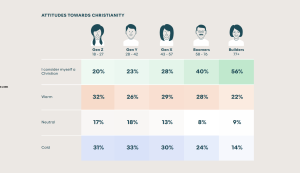
4. Finally (with a big image – so you can read the details)…
- While only 20% consider themselves Christians (compared to 56% of the age 77+ group)
- 51% are warm or neutral toward Christianity.
> This means they are not as negative toward Christianity as some might think. It also shows they aren’t actually believing all the negativity toward the Christian faith reflected in public media and sometimes also in education! They might be feel sceptical – like when Christian views on a ‘controversial’ public issues are raised. But at the same time, there is something inside them telling them that there is more. A spiritual reality exists – and they WANT to know that reality. There is opportunity here – if we are bold to see and do things to engage.
CONCLUSION:
There are good reasons for
- more boldness in outreach to youth
- more investment (financial and in time) to support outreaching innovation – whether by individuals, ministries, individual youth ministries or groups of youth ministries that are working together in their city or town.
Remember (the ‘statistics’ of church outreach): The majority who come to faith do so before age 20 (about 85% in some studies) – but that involves church family youth – many of whom come to faith while children
- If we only consider those from non-church families – the majority come to faith in the age 11 to 14yo bracket, and then in the age 15 to 18!
- Clear engagement with both love and reason are important with the 11 to 14 year olds!
- My feeling is that most work with 11 and 12yos is ‘light’ and’surface’ – therefore failing to engage with the real questions of faith, reality, God, suffering and more that they are already reaching conclusion on.
- Clear engagement with both love and reason are important with the 11 to 14 year olds!
- In short, if we think Christianity is good for our society, more GOSPEL focus is needed
- This statement is comparative.
- Many youth group and Christian youth movements give huge effort to ‘supporting youth’ – like social workers, giving empathy and care to them for their problems. This is valid also – due to the significant effects of the culture-wide breakdown of basic family structure/
- Concurrently, gospel focus is possibly not as strong as it could be in many of our nation’s denominational youth movements – were a look through websites a measure. There is concurrently a distinct lack of funding for outreach initiatives to youth – possibly redirected to the ‘social service’ approach.
- This statement is comparative.
Most who come to faith from non-church homes do so in their teenage years.
Jesus changes lives – and this generation of the young are more open to considering this than the previous, and previous, and previous generations!!!
There would be wisdom in giving a lot more focus and support to gospel outreach amongst youth!

Thanks to McCrindle Research Australia.
